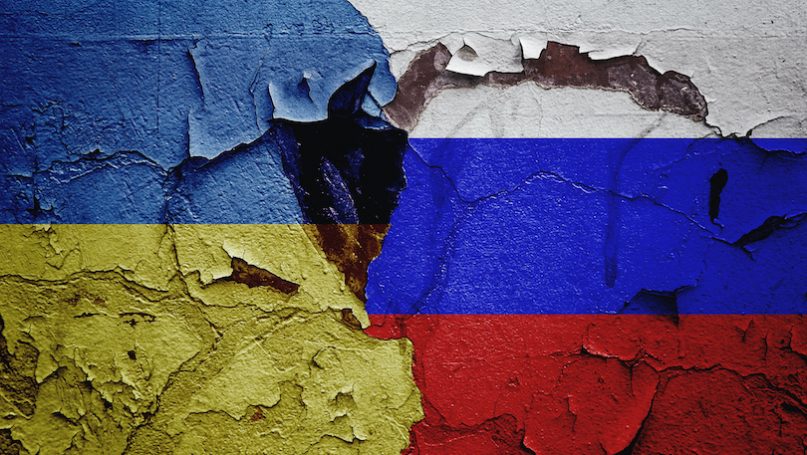It has been 18 days since Russia launched what President Vladimir Putin called a “special military operation”, but which the rest of the world rightly calls an invasion. Russia has reportedly deployed over 200,000 ground troops in a in a full-scale war boosted with air bombardments of many Ukrainian cities. Russian troops have taken one Ukrainian city, Kherson, and are closing in on the capital, Kyiv, as well as on Kharkiv, Mariupol, and Odessa. But so far Ukraine has held its ground in a fierce resistance, even as the Ukrainian leader, President Volodymyr Zelensky said Friday that the conflict has reached a “strategic turning point”.
The United States and its Western allies in Europe and elsewhere have responded to the invasion in three major ways. The U.S and its North Atlantic Treaty Organization (NATO) allies have rounded up behind Ukraine in terms of weapons and other forms of military assistance. On second day of the war, U.S President Biden ordered the release of weapons worth $350 million to Ukraine while the European Union (EU) released over $500 million in military aid to Ukraine. Germany has supplied Ukraine with over 1,500 anti-tank weapons and surface-to-missiles, while Britain, France, The Netherlands and other European countries have also chipped in separately with either weapons or money for weapons purchases. Even Switzerland, reknowned for its neutrality in previous European wars for centuries, has broken with tradition to provide military support to Ukraine.
Second, the U.S and its NATO allies have also slammed an unprecedented barrage of economic sanctions on Russia, while at the same time providing financial and economic support to Ukraine. Key Russian banks have been ejected from SWIFT, the global payments system that facilitates trade between countries. The U.S has banned Russian oil imports, while several other European countries are adopting measures to follow suit in the near future. Also, some of the sanctions have directly targeted Russian President Vladimir Putin and other Russian “oligarchs”. Hundreds of western multinational companies operating in Russia, from McDonald’s and Starbucks to Shell and Exxon, to Apple and Disney.
The third strategic Western response has been a crippling diplomatic isolation of Russia, aided and abetted by a blanket one-dimensional news coverage of the conflict by so-called independent western media. One week into the war on 2nd March, 141 of the 193 UN member states voted in an emergency session for a resolution that condemns the invasion and calls for Russia to withdraw its forces. Some 35 member states abstained, while five, including Russia itself, voted against. It all came to naught, of course, since Russia holds a veto. Moreover, Russia has been expelled from major international sporting and athletics organizations, including UEFA and FIFA, the European and world football governing bodies respectively. And just this Friday, the G7 countries voted to strip Russia of its “most favoured nation status”, whatever that means for a country that was once a member when that body was G8.
It is good news to the world that the U.S and its NATO allies have not intervened military directly in the conflict: no NATO boots on the ground and no fly-zones over Ukraine, even after repeated calls from Zelensky to NATO to do just that. President Biden, British Prime Minister Boris Johnson, and NATO Secretary General Jens Stoltenberg have all made it clear that a no-fly zone over Ukraine is not on the table. We hope that things never get to that, for the consequences will be catastrophic for all the world. As U.S Senator Marco Rubio has explained, a NATO no-fly zone simply means World War III. We reject this bleak prospect.
But the human costs and displacements from the conflict cannot continue either. According to the UN, more than 2 million Ukrainians have fled since the start of the war, and hundreds of thousands are trapped in many cities under siege, without access to the humanitarian assistance they need. We are not oblivious of European hypocrisy and double standards in its treatment of Ukrainian refugees vis-à-vis refugees from the Middle East and Africa who have fled wars directly provoked by the U.S and its European allies themselves. Still, we welcome the support being given to Ukrainians fleeing conflict, even as we insist that the same must be accorded to peoples from Libya, Yemen, Afghanistan and Iraq who are running away from similar conditions in their own countries for no fault of theirs.
Most importantly, we call on the international community to put an immediate end to this most needless of wars. Western economic sanctions, diplomatic isolation, media propaganda and military assistance to Ukraine will only prolong the conflict and visit even more suffering on ordinary Ukrainians caught between a deadly game of the superpowers. This is not only unnecessary; it is also inhumane. None of these can also bury two simple facts in this conflict: Russia and Ukraine are geographic neighbours and will forever remain so. And because of that, Russia has genuine concerns about Ukrainian security dalliance with the U.S and NATO.
As Henry Kissinger, a former U.S Secretary of State wrote in the Washinton Post in 2014, Ukraine must not be made to have to choose between East and West. It can be, and should be, a bridge between them. In other words, a diplomatic solution that works for all sides existed, and still exists. All concerned must pursue this and bring this pointless war to an end.

 Join Daily Trust WhatsApp Community For Quick Access To News and Happenings Around You.
Join Daily Trust WhatsApp Community For Quick Access To News and Happenings Around You.


